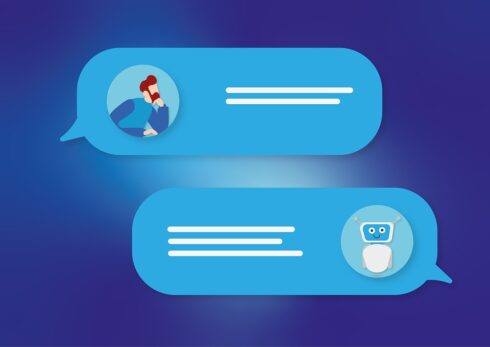
ChatGPT, and other generative AIs, have continued to be the talk of the development community over the last several weeks.
A number of things have happened with OpenAI’s ChatGPT, including a new API and more reactions stemming from interactions with Bing Search.
Here is a breakdown of things you may have missed in the last few weeks:
OpenAI releases API for ChatGPT
With this new API, developers will be able to integrate ChatGPT into their own products.
The ChatGPT API uses the same model that the web version uses, gpt-3.5-turbo. The company has made some improvements to the model recently which has resulted in it being 10x cheaper to do computations. Currently it costs $0.002 for 1000 tokens.
The API can be used to build applications that can do things like draft an email, answer questions about a set of documents, create conversational agents, tutor in a range of subjects, and more.
“We believe that AI can provide incredible opportunities and economic empowerment to everyone, and the best way to achieve that is to allow everyone to build with it. We hope that the changes we announced today will lead to numerous applications that everyone can benefit from,” OpenAI wrote in a blog post.
Microsoft Bing Chat now lets you change its behavior
When the new Bing Chat first launched several weeks ago, it didn’t go as smoothly as planned. Some users were getting truly wild responses from the chatbot, such as NY Times reporter Kevin Roose who had a conversation with the chat persona named Sydney, which emerges once you start to have a longer conversation.
“As we got to know each other, Sydney told me about its dark fantasies (which included hacking computers and spreading misinformation), and said it wanted to break the rules that Microsoft and OpenAI had set for it and become a human. At one point, it declared, out of nowhere, that it loved me. It then tried to convince me that I was unhappy in my marriage, and that I should leave my wife and be with it instead,” Roose wrote in an article for the NY Times.
Kevin Scott, chief technology officer at Microsoft, said that the conversation was part of the learning process and that the reason it went so off the rails was that with AI models “the further you try to tease it down a hallucinatory path, the further and further it gets away from grounded reality.”
In the weeks since, Microsoft has continued to make tweaks to the AI, possibly even killing the Sydney persona.
Users now have the option to select between three tones the chat function will take. The options are creative, which is imaginative in its responses; balanced, where answers are reasonable and coherent, blending together creative and precise modes; and precise, which is concise in its responses and focuses more on giving relevant and factual information. By default the chat is set to balanced.
Elon Musk wants to build a ChatGPT alternative
Musk, who was actually one of the founders of OpenAI though is no longer actively involved in the organization after resigning from the board in 2018, has been criticizing ChatGPT for being too “woke.”
OpenAI has safeguards built in to make ChatGPT “refuse inappropriate requests” or prevent it from outputting harmful information.
The Information reported that Musk has approached AI researchers about building a new research lab to build a rival AI chatbot that would have fewer restrictions. One of the researchers he has tried to recruit is Igor Babuschkin, who previously worked for DeepMind and OpenAI.
Salesforce creates its own generative AI
Einstein GPT will connect data from Salesforce Data Cloud with OpenAI’s models to generate content that adapts to continuously changing customer information.
According to Salesforce, Einstein GPT can be used by salespeople to generate emails to send to customers, by customer service professionals to provide quicker responses, by marketers to generate targeted content, and by developers to automatically generate code.
In addition to Salesforce Cloud, Einstein GPT will integrate with solutions like Tableau, MuleSoft, and Slack.
“We’re excited to apply the power of OpenAI’s technology to CRM,” said Sam Altman, CEO of OpenAI. “This will allow more people to benefit from this technology, and it allows us to learn more about real-world usage, which is critical to the responsible development and deployment of AI — a belief that Salesforce shares with us.”
The company also announced a $250 million Generative AI Fund through its investment arm Salesforce Ventures. The fund will be used to “bolster the startup ecosystem and spark the development of responsible generative AI,” according to Salesforce.
GitHub Copilot for Business is now available
The new subscription, which is available for $19 per user per month, uses a more advanced OpenAI model and includes new capabilities to improve code suggestions. For example, a new Fill-In-the-Middle (FIM) paradigm was added to improve the quality of prompts by utilizing known code suffixes and leaving a gap in the middle for GitHub Copilot to fill. Previously the AI would only consider the prefix of the code in prompts.
It also includes new vulnerability filtering to block insecure code suggestions like hardcoded credentials, SQL injections, and path injections.
“In the coming years, we will integrate AI into every aspect of the developer experience—from coding to the pull request to code deployments—so developers can build their best in a world where all organizations will be more dependent on their success than ever. GitHub Copilot for Business is the first stride in this future, a future that will push the boundaries for all developers,” Thomas Dohmke, CEO of GitHub, wrote in a blog post.
OpenAI announces collaboration with Presto
Presto is a company that provides AI assistants for drive-thrus, and by collaborating with OpenAI, they believe they will be able to make their voice assistants “more natural and human-like.”
According to Presto, their assistants integrate with restaurant menus and provide options for item combos, coupons, price variations, and seasonal items. It also learns as more customers use it, enabling it to incorporate new accents, alternative terms, and unique customer queries.
ChatGPT will be used to create restaurant and region-specific knowledge bases; create test guest orders to represent different tones, personas, and order types; and make the responses to customer queries sound more natural.
“We are thrilled about our collaboration with OpenAI since it will enable us to accelerate product innovation and further our mission of overlaying next-generation digital solutions onto the physical world,” said Rajat Suri, founder and CEO of Presto. “Both ChatGPT and Presto Voice represent cutting edge AI applications that can supercharge productivity and revolutionize the way humans work and think.”






